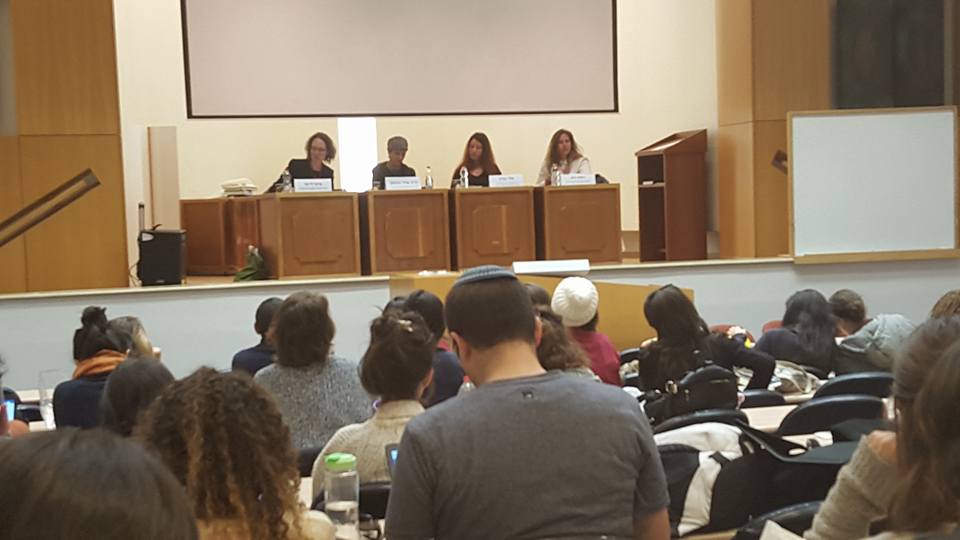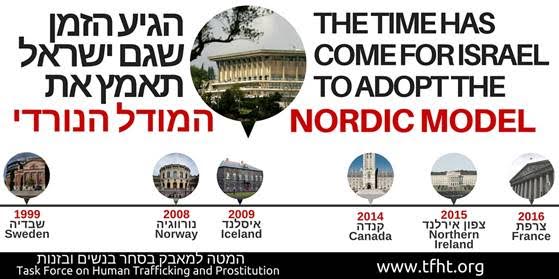Government agencies aren’t cooperating enough and more sex workers are arriving from Eastern Europe than before, the report by Hotline for Refugees and Migrants says
Ilan Lior Apr 26, 2016, HA’ARETZ
Human rights organizations are identifying far more victims of human trafficking than the state, a rights group says in a new report. According to the report, prepared by the Hotline for Refugees and Migrants, about 80 percent of trafficking victims from the asylum-seeker community were identified last year by human rights organizations rather than state agencies. The Hotline itself identified 28 African asylum seekers as trafficking victims who had suffered torture in the Sinai Peninsula en route to Israel. At the organization’s urging, the state recognized 19 of them as trafficking victims, and four were released from Saharonim Prison.
The report adds that last year saw a rise in the number of women who came to Israel on tourist visas from Eastern Europe and were put to work in the sex industry. It says 11 such women, after being arrested on suspicion of engaging in prostitution, were deported by the Population, Immigration and Border Authority without any coordination with the police or examination of the circumstances that brought them to Israel. Even though the administrative tribunals that deal with such cases have harshly criticized this lack of coordination, there have been no signs of any improvement, the report says.
Over the past decade, Israel worked hard to improve its handling of human trafficking in order to earn a Tier-1 ranking on the U.S. State Department’s Trafficking in Persons Report, Hotline says. And as long as Israel was trying to improve its ranking, state agencies were careful to coordinate in an effort to end human trafficking. But in recent years, cooperation between the population authority and the police has deteriorated, the report says.
As a result, women arrested for prostitution are sometimes deported even before police have questioned them to find out whether they were trafficking victims, making it impossible for the police to find the traffickers.
The recent decision to allow visa-free travel from Ukraine and Moldova made it harder to monitor human trafficking from those countries, the report says. The report notes that for the past few years, the Justice Ministry has run courses for both judges on administrative tribunals and prison staffers on how to identify victims of trafficking and torture. Still, Hotline activists have repeatedly identified trafficking victims who were missed by prison staffers and tribunal judges.
“The numbers show that the perception of trafficking as something that has been eradicated in Israel has prevented the authorities from taking action against the new face of this phenomenon,” Hotline director Reut Michaeli said in a statement. “The characterization of women working in prostitution as offenders who have to be deported, not as survivors who need rehabilitation, is problematic and reminiscent of the late 1990s and early 2000s, a period when the trafficking of women in Israel was at its peak.”
The Justice Ministry said it only heard of the report when asked about it by Haaretz and wanted to study it before responding. Nevertheless, it added, the ministry department that coordinates the fight against human trafficking has overseen fruitful cooperation between all the relevant parties, including state agencies, the Knesset, Israeli NGOs and international organizations. It said this cooperation had been underway since the department’s establishment in 2006 so that “human trafficking has been significantly reduced in a manner that has gained international recognition.”
The police similarly said they hadn’t received the report and therefore couldn’t comment, adding they had no idea what the statistics were based on. But they said they were fighting trafficking resolutely in close cooperation with other state agencies and with scrupulous attention to the rights of both suspects and victims.
The population authority said that as soon as someone is identified as a trafficking victim, he or she is treated as per the regulations.










